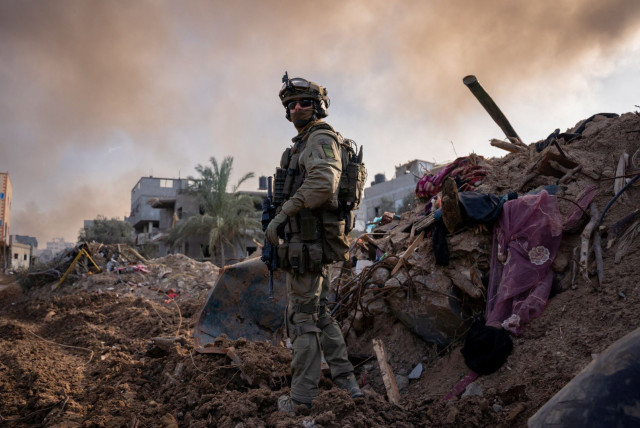Nightmares of Gaza war highlight Israeli trauma and resilience - study

Contrary to the research he carried out in the past, since the beginning of the war, many dreamers reported a deeper auditory dimension, such as sounds and noises of alarms, explosions, and screams.
The days since October 7 have been a living nightmare for all Israelis, but does it also affect our dreams when we sleep? Dr. Udi Bonstein, chief psychologist at the Galilee Medical Center in Nahariya, who has conducted a study on our dreams during the current Gaza war, has found that there has been a significant increase in nightmares and a feeling of helplessness.
However, he says, there is also reason for optimism; his research shows that the ability to deal with nightmares is impressive and indicates resilience among Israelis.
“When I was appointed to manage the emergency psycho-trauma unit at the medical center at the beginning of the war, I started having dreams every night in which I was on a kind of military front line and was running the war,” recalled Bonstein. “It was an unpleasant feeling, and in the mornings, I would wake up completely drained. At the same time, patients told me about strange dreams they had been having since the beginning of the war. As a result, I decided to research the subject.”Bonstein, a senior clinical and medical psychologist and dream researcher who is licensed to practice hypnosis, set out on the mission together with his daughter Or, a bachelor’s student in psychology. The current study was based on his previous study conducted before October 7 that included about 700 people, to which he added 160 more subjects, aged 16 to 70. The respondents answered three comprehensive questionnaires that examined various aspects of dreaming and other psychological dimensions.
More nightmares since the beginning of the war
The research shows that during the war, we have been having many more nightmares, some of which wake us up from sleep. About 30% of the respondents reported a feeling of “powerlessness,” Bonstein reported.Contrary to the research he carried out in the past on the subject of dreams, since the beginning of the war, many dreamers have reported a deeper auditory dimension, such as the sounds and noises of alarms, explosions, and screams.Another piece that emerges from the research is that among the nightmares, there were also dreams that indicate adaptation to the situation and a high ability to cope. “Just as in reality we witness many acts of heroism, so also in dreams, and this is perhaps the most important finding – the ability to recognize what allows for better adaptation to the situation,” Bonstein explained. “The ability to deal with crises in a dream usually translates to the ability to solve difficult problems and complexity in life itself.”In his research, he also identified that fantasy and reality mix much more during wartime, which sometimes indicates a post-traumatic condition. “It’s completely natural to have bad dreams and nightmares during wartime,” Bonstein concluded. “The patient knows how to find the ability to cope in a dream. It makes the process of dreaming, even of nightmares, more empowering and good for the soul.”
Jerusalem Post Store
`; document.getElementById("linkPremium").innerHTML = cont; var divWithLink = document.getElementById("premium-link"); if (divWithLink !== null && divWithLink !== 'undefined') { divWithLink.style.border = "solid 1px #cb0f3e"; divWithLink.style.textAlign = "center"; divWithLink.style.marginBottom = "15px"; divWithLink.style.marginTop = "15px"; divWithLink.style.width = "100%"; divWithLink.style.backgroundColor = "#122952"; divWithLink.style.color = "#ffffff"; divWithLink.style.lineHeight = "1.5"; } } (function (v, i) { });

